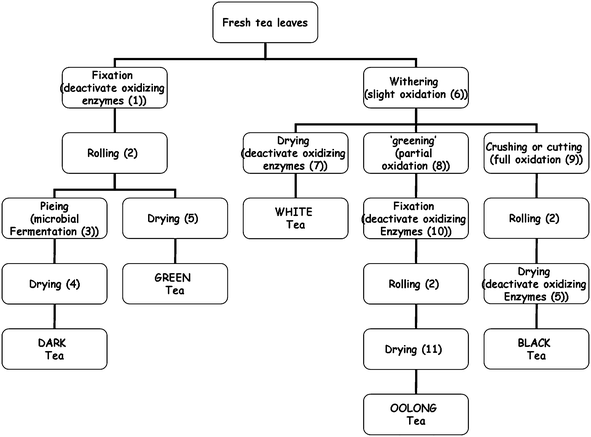Scientists from Australia and China have reported the Angiotensin Converting Enzyme (ACE) inhibitory activity of a variety of teas (Camellia sinensis) in vitro. ACE is an important enzyme involved in the control of blood pressure, as it transforms angiotensin into angiotensin II, which is a powerful vasoconstrictor. Therapeutic ACE inhibitors are therefore an important class of pharmaceuticals which can be used to control high blood pressure. A variety of food components including polyphenolics, peptides and unsaturated fats have been shown to lower blood pressure via inhibition of ACE.
 This study correlates the processing methods used to produce the tea with the observed ACE inhibitory properties. It was found that the polyphenols in green tea (non-oxidized tea) displayed the highest values for ACE inhibition, whereas the polyphenols in black and dark teas (fully-oxidized teas) had the lowest inhibitory activity of the 5 varieties tested. In addition, the ACE inhibition kinetics were explored for the range of teas in order to characterize the mechanism of inhibition. An allosteric (not Michaelis–Menten) mechanism was observed, which implies synergistic subunits within the enzyme or the occurrence of irreversible changes to the enzyme – a mechanism which is common in pharmaceutical ACE inhibitors.
This study correlates the processing methods used to produce the tea with the observed ACE inhibitory properties. It was found that the polyphenols in green tea (non-oxidized tea) displayed the highest values for ACE inhibition, whereas the polyphenols in black and dark teas (fully-oxidized teas) had the lowest inhibitory activity of the 5 varieties tested. In addition, the ACE inhibition kinetics were explored for the range of teas in order to characterize the mechanism of inhibition. An allosteric (not Michaelis–Menten) mechanism was observed, which implies synergistic subunits within the enzyme or the occurrence of irreversible changes to the enzyme – a mechanism which is common in pharmaceutical ACE inhibitors.
To find out more, read the full article for free by following the link below:
Inhibition of angiotensin converting enzyme (ACE) activity by polyphenols from tea (Camellia sinensis) and links to processing method, Junjie Dong, Xinqing Xu, Yuerong Liang, Richard Head and Louise Bennett, Food Funct., 2011, DOI: 10.1039/C1FO10023H










